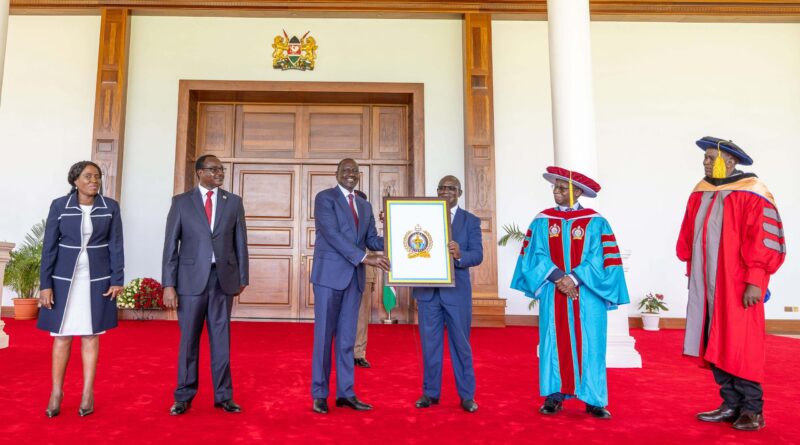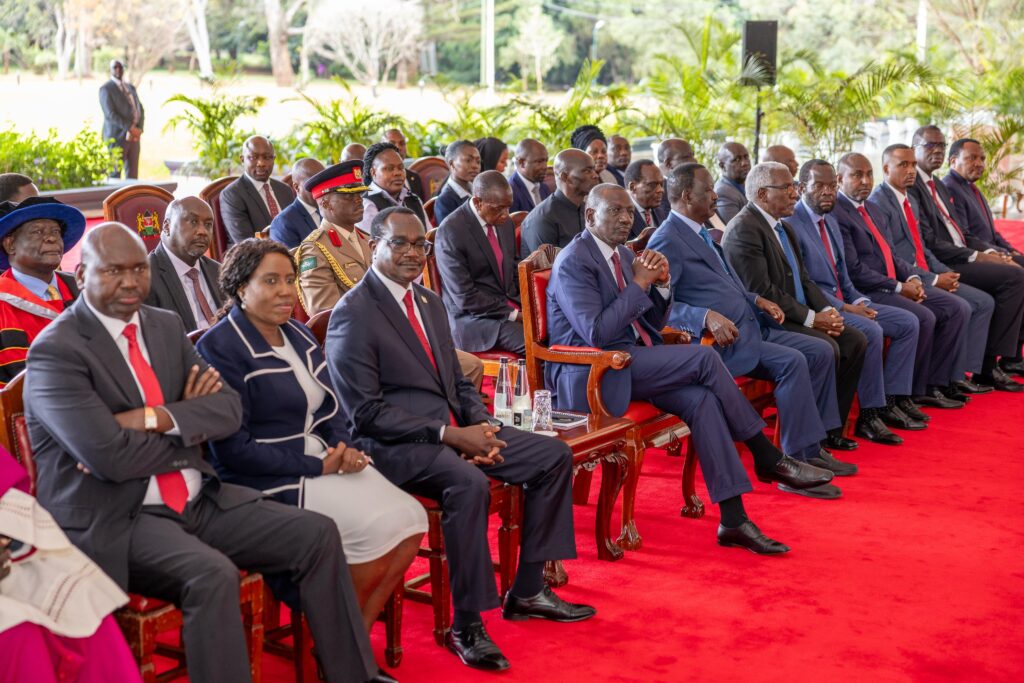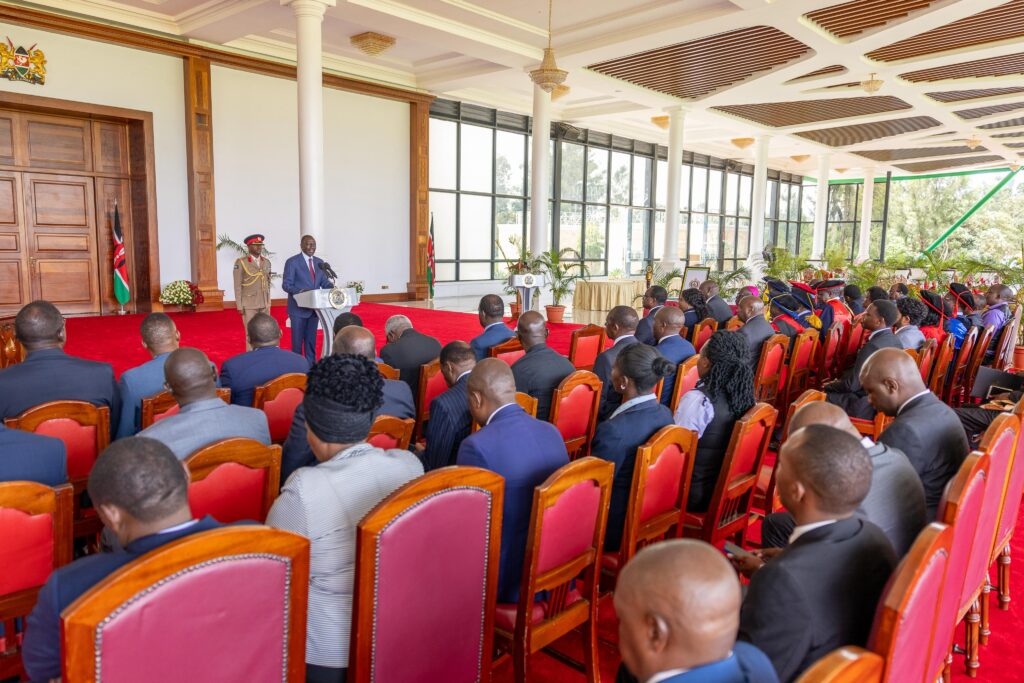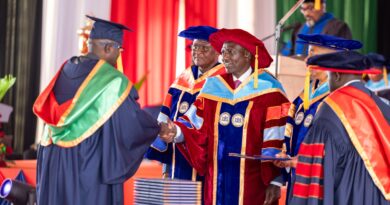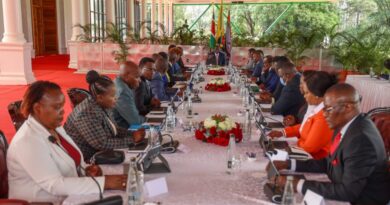President Ruto Awards Charter to Uzima University
From president.go.ke and @StateHouseKenya
May 8, 2025
President William Ruto has said that leaders must have the courage to make the right decisions, which are difficult and bold but accelerate the country’s transformation.
The President said Kenyans must choose between politically correct, simplistic, and convenient decisions and those that will help change Kenya’s destiny.
“To change our country, we must make decisions that will change the course and destiny of our nation. They may not be popular or simple, but these are the right decisions,” he said.
President Ruto pointed out that Kenya must learn from countries like South Korea and Singapore that made difficult decisions that helped the two countries to reach where they are today.
He pointed out that Singapore had a huge housing crisis characterised by huge slums. But the South-East Asian country implemented a housing programme that created jobs and empowered citizens to become homeowners.
Today, the President said, 95 per cent of Singaporeans are homeowners, and they are a first-world country.
He spoke at the State House, Nairobi, on Thursday during the awarding of Uzima University’s charter. Former Prime Minister Raila Odinga, Education Cabinet Secretary Julius Migos Ogamba, Kisumu Governor Anyang’ Nyong’o, and founder Archbishop Emeritus Zacchaeus Okoth were present.
President Ruto explained that the government is keen on making tough but necessary decisions for the country’s progress. He cited the Affordable Housing Programme, the New University Funding Model, and the subsidised fertiliser programme as decisions that have improved Kenya.
The President said subsidised fertiliser has increased agricultural productivity, resulting in increased maize, sugar, coffee, and tea production, among other things.
In the education sector, President Ruto said the government is pursuing innovative and targeted reforms to expand access, reform the curriculum, address funding challenges, improve infrastructure, and enhance the quality of teaching, learning, and research.
He emphasised the government’s commitment to quality and relevant education, which is essential for providing the necessary knowledge and skills.
Pointing out the benefits of the new university funding model, he said it had made it possible for universities to pay the salaries of lecturers, other staff, and suppliers and remit the requisite taxes, thus pulling the institutions out of bankruptcy.
“The new funding model has resolved the longstanding challenge of chronic underfunding that had pushed many public universities to the brink of bankruptcy. Today, these institutions are on the path to financial recovery and are expected to clear their debts in a few years time,” he said.
President Ruto also said the new funding model is student-centred, ensuring that every learner, regardless of their background, gender, or economic status, has a fair opportunity to pursue their academic ambitions.
The President assured all learners, parents, and institutions of learning that the government is fully committed to disbursing funds in a financial year.
On Uzima University, the President commended the institution for creating an academic niche instead of mass training.
He said it was commendable that Uzima University chose the medical field, which is more difficult to train in and whose outcomes transform society.
“Uzima’s range of programmes, including medicine, clinical medicine, nursing, microbiology, and health systems management reflects the institution’s dedication to health sciences and national needs,” he said.
President Ruto also thanked Archbishop Emeritus Zaccheus Okoth, the founder and first Chancellor of Uzima University, for his commitment to improving healthcare and education in Western Kenya.
“Through his foresight, Uzima was conceived not only as a centre of learning, but also as a mission to produce competent, ethical, and compassionate health professionals who serve with a sense of purpose,” he said.
Mr Odinga said imparting knowledge to citizens helps a society progress and confront its challenges.
“Kenya today is at a very critical stage of development. We require knowledge to uplift our country from the status of a third-world economy to a first-world economy,” he said.
Mr Ogamba said the Ministry of Education is committed to supporting institutions through policy guidance, quality assurance, infrastructure development, and research collaboration.
“We envision an ecosystem where public and private universities thrive, complement one another, and contribute meaningfully to the national agenda,” he said.
He pointed out that private universities play a critical role in enhancing access to university education, saying that of Kenya’s 80 universities, 36 are private.

